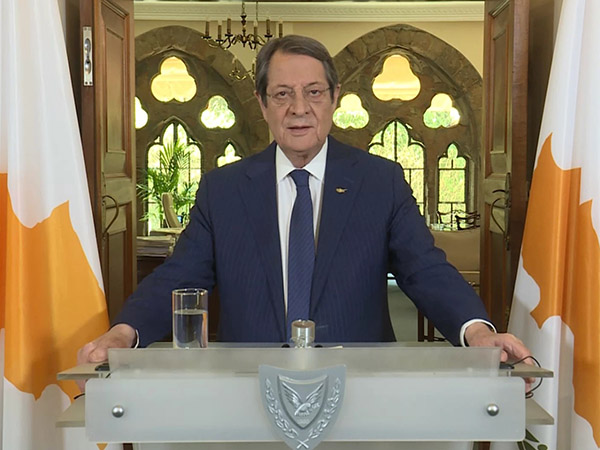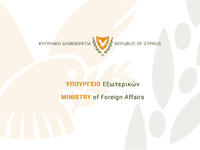Press Releases

10-06-2021 10:15
Address by the President of the Republic of Cyprus, Mr Nicos Anastasiades, at the Council of Europe Conference of Ministers Responsible for Media and Information Society
It is with great pleasure that I extend a very warm welcome to all the distinguished participants of the Conference “Artificial Intelligence-Intelligent Politics: Challenges and Opportunities for Media and Democracy”.
We are truly delighted and honoured that Cyprus is hosting this important Council of Europe conference, which, unfortunately, is convened virtually due to the COVID-19 pandemic.
Technological advancements in the last two decades, and the transformation they have brought about, have resulted in unprecedented political, economic and cultural globalisation and connectivity.
In the digital era, everything is happening at lightning speed, whereas social media platforms have utterly transformed the world of journalism.
In this respect, whether we like it or not, Artificial Intelligence is here to stay. While its benefits may be multiple, its presence raises legal, ethical, as well as policy and economic complexities.
On the one hand, Artificial Intelligence may enable broader, quicker and more targeted means of sharing information and ideas globally. On the other hand, Artificial Intelligence systems deployed may also interfere with the formation and development of opinions, access to information and other fundamental aspects of individual autonomy.
Such a development has opened up the prospect of misinformation at an enormous pace and scale. Anyone can publish or post an opinion or perspective, regardless of whether it is true or false, and have that opinion amplified within the information marketplace.
Misinformation, disinformation and propaganda are now happening on a massive scale and are easy to target over a world living in an increasingly social media existence.
Hence, we need to reflect on the various challenges posed by integrating Artificial Intelligence technologies into journalism, particularly as regards the field of ethics and its wider implications on our society.
As reliance on Artificial Intelligence grows in today’s information environment, it also remains critical to address its impact on the exercise of freedom of expression which is a core element of any democratic society and a pluralistic media based on freedom of information and opinion.
To this end, we should not neglect that cases of violence against journalists, illegal arrests, online threats, harassment, intimidation, kidnapping, and even murders, are on the rise.
The old perception that journalists are killed far from the public eye, in battlefields covering wars, is no longer true.
Last year’s cases illustrate that the lack of safety and integrity for people who provide us with news and information does not have frontiers.
At the same time, emphasis should be also placed on another alarming fact of female journalists being subjected to more attacks than their male colleagues.
That is why I wish to underline the necessity of creating safe working conditions for all media workers so that they may continue practising their profession safely and independently.
During the pandemic crisis, journalists assumed the most important role in communicating facts about COVID-19, having at the same time to deal with great professional challenges and difficulties, ranging from health safety matters, to the pandemic’s severe economic consequences and to dealing with misinformation.
Fake news, conspiracy theorists and anti-vaccine campaigners have spread confusion all these months in relation to health risks, based, always, unfortunately, on unfounded claims.
Correct and factual information was – and still is – a key to tackling this virus, and the media industry remains the main source of reliable information.
I have no doubt that the Conference will provide a unique opportunity for a fruitful exchange of ideas between Ministers Responsible for Media and Information Society in the Council of Europe member states and the stakeholders participating, including academia, the civil society and the tech and business community.
I also have no doubt that the Declaration to be adopted at the end of the Conference will provide the concrete commitment for proceeding with all the necessary steps to implement decisions on a number of priority areas and will set the Council’s agenda in the area of freedom of expression.
Thank you very much and once again, welcome to the Conference.
A video of the address by the President of the Republic may be viewed here.
(EH/MG/SCH)







